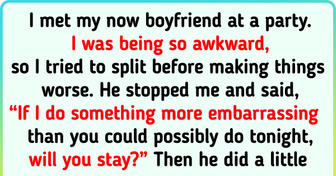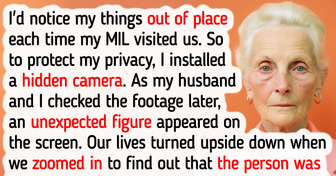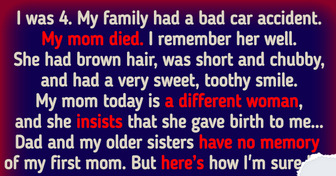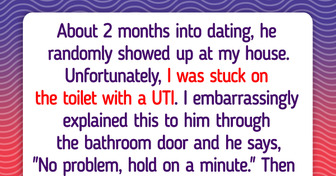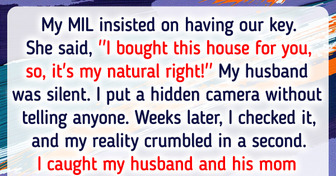33 Hard-to-Find Photos of Celebrities That Are Too Remarkable to Be Forgotten

We all experience quarrels with our loved ones and can come across problems along the way. But according to one study, avoiding an argument increases tension and stress levels. That’s why we should learn how to remain calm in the face of disagreements with our loved ones so that in the end, we can forgive that person and continue to love them.
At Bright Side, we compiled some methods and tips for successfully resolving a conflict and staying calm during these uncomfortable scenarios.
During our lives, we deal with arguments. And the person who is evoking these strong emotions in you may be using verbal attacks, denying things after hearing what you’ve said, lying, avoiding the topic, or employing the infamous gaslighting technique. These are things that a person can use to worsen the argument even more.
This all comes down to one thing. The person who is angry wants to send a message to you that what you are saying is wrong or problematic. When a person gets caught up in something, it will be pointed out to the other as something for them to be held accountable for in the first place, and this confrontation is inappropriate, even though it sounds correct.
Individuals who are defensive often have power and control issues, and whoever confronts them treats them as a threat because they feel uncomfortable when it comes to their feelings. They also don’t want to work it out with the other person because they are highly impulsive and have a quick emotional reaction without thinking that it could be a problem or just the other way around.
When a person gets triggered, the limbic system activates, and it involves the processing of emotions, which means it all goes downhill. When we argue with our loved ones, we should always remember that whatever we are thinking affects our actions toward that person and what we’re doing.
These people like to avoid accountability, which means that you should back off. This is especially true for adults who already have well-developed emotions when comes to understanding and thinking. So when someone gets triggered, it sends a clear message that you should go away and give them space. This is also considered a negative communication pattern that can lead to greater escalation.
When this happens or it’s said already, then it will cause both parties to get triggered too. For the person who gets attacked, they think that the defensive person that they are dealing with did not remember all the moments they’ve been through, and then it turns into a huge fight. The psychological defense mechanism that has been building for many years will now be activated in order to protect the ego.
When you encounter someone who is acting like this, it’s important that you don’t say, “You’re getting defensive.” Also, don’t say anything that will evoke strong emotions that will cause the whole conversation to go down the tubes because they already know they’re being defensive and you’re not the first person to point that out. Or perhaps you can avoid saying anything along the lines of a communication roadblock, such as ridiculing, lecturing, etc.

Anger is different for everyone, but it’s related to our interactions with other people or with that specific individual. To calm yourself down during a fight, use avoidance or escape the situation so that you can think clearer, get more relaxed, do something that will calm your body and mind, and finally, use cognitive restructuring, where you overcome negative thoughts and are able to reflect on them quickly by coming up with effective solutions to the problem.
When the fight is happening and you see that it will only get bigger and more intense, it’s important that you pause for a few seconds because, if not, then you’ll just be putting more gas on an existing fire. Put your attention to something and distract yourself so that your limbic reaction won’t activate.
After that, gently walk away while saying to the other person that you need space to think and breathe. When the conflict is successfully done, go to your loved ones and friends and ask if you were the one who was wrong or problematic.
After getting an answer, reflect on your actions and the words you have said. In this way, you will be more open to yourself, and the next time it happens, you’ll know what to do and what to control inside of you. Always remember to treat each other with equal respect, understanding, and fairness.
Some people may think that it seems unfair to always be the one to understand them in the first place, but remember that the person you are having conflicts with is someone you have cherished and loved for years. Be the one to understand and ask why in a manner that is gentle, pausing to have quick reactions to put the fire out. It will hurt more if you say something that you don’t mean.
No matter how big the argument is, remember to always be gentle with one another. Do you have any tips or suggestions for people who are having a hard time resolving conflicts? Tell us in the comments.


